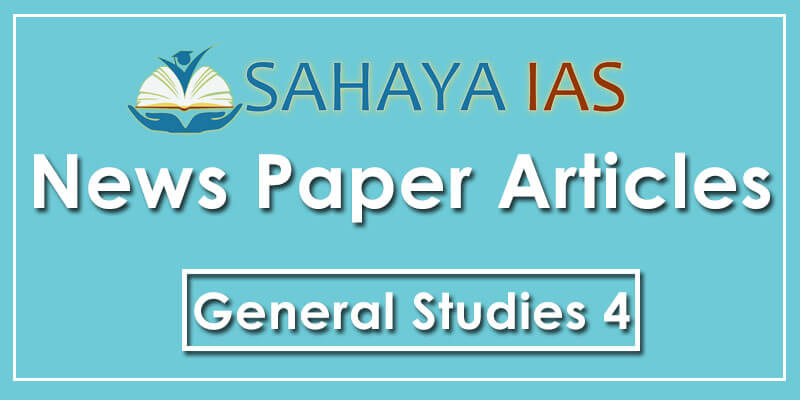Balance of power, in the balance-Any attempt by the Centre to override the RBI Governor using the RBI Act would be ill-advised
Context:The role of the Board of Directors of the Reserve Bank of India (RBI) and its powers vis-à-vis the RBI Governor have come into focus in the ongoing tussle between the Centre and the central bank.
- The Centre has hinted that it is examining the option of using the powers of the RBI Board to override the Governor.
- There are several questions that arise from this unprecedented attempt by the Centre to use powers under the Reserve Bank of India Act, 1934.
- The relationship between the board and the Governor is not comparable to a corporate set-up where the managing director (the corporate equivalent of the Governor) reports to the board and draws his powers from it.
- While a managing director is an agent of the board in a company, in the RBI, the Governor is not. Governor draws his powers from the RBI Act and not from the Board of Directors. He appointed by the Prime Minister in consultation with the Finance Minister.
- The RBI Board has no say whatsoever in his appointment. In a company, the board of directors chooses one of its own to be appointed as the managing director.
- In the RBI, the Governor secures board membership only after he is appointed to the post. It is, thus, wrong to compare a corporate board to the RBI’s and suggest that the Governor is subservient to it.
Constitution of the board
- As per the RBI Act, the board is made up of the following members: the Governor and four Deputy Governors, four directors (one each from the four regional boards of the RBI), 10 directors to be nominated by the Centre, and one government official who is also to be nominated by the Centre.
- The present board is made up of 18 members, which is the Governor and four Deputy Governors, four regional board members and nine nominees from the Centre who include two officials, the Economic Affairs Secretary and the Secretary, Department of Financial Services.
- The sections in the RBI Act dealing with this subject are rather vaguely worded.
- Eminent past Governors have interpreted Section 7, the relevant one, to mean that the powers of the board and that of the Governor are concurrent.
- The Governor draws his powers from Section 7(3) of the Act.
- And then, there is the brahmastra of Section 7(1) which confers powers on the Centre to issue directions to the RBI “from time to time” in the public interest after consultations with the Governor.
- All bets will be off if this section is invoked as it will become untenable for the Governor to continue in his position.
Convention
- The RBI Board has always functioned in an advisory role with the understanding that the Governor would consider its advice while making policy decisions.
- In other words, there was mutual respect between the board and the Governor, with both operating in a spirit of accommodation.
- The fact is that neither Section 7(1) nor Section 7(3) has been unleashed in the 83-year existence of the RBI.
- Not even when the RBI was privately owned between 1935 and 1949.
- The short answer is that the spirit of accommodation, which flows out of mutual respect and understanding of each other’s compulsions between the RBI and the Centre, and which was evident earlier, is absent now.
- And the blame for this has to be shared by the players involved in the current tussle.
- There is a good reason why the RBI has been kept at arm’s length from the Centre and bestowed with a certain independence.
- That is because the Centre is the spender and the RBI is the creator of money, and there has to be a natural separation between the two.
- The Centre arming itself with powers to run the RBI runs afoul of this precept.
- Whichever way we look at it, such a move by the Centre would be ill-advised and will take its relations with the monetary authority into uncharted territory with no winners in this dangerous game.
- Enough dirty linen has been washed in public in the past month and it is time for the Centre and the RBI to behave like the mature entities that they are, uphold time-tested conventions, and act with mutual respect and a spirit of accommodation.



Comments (0)